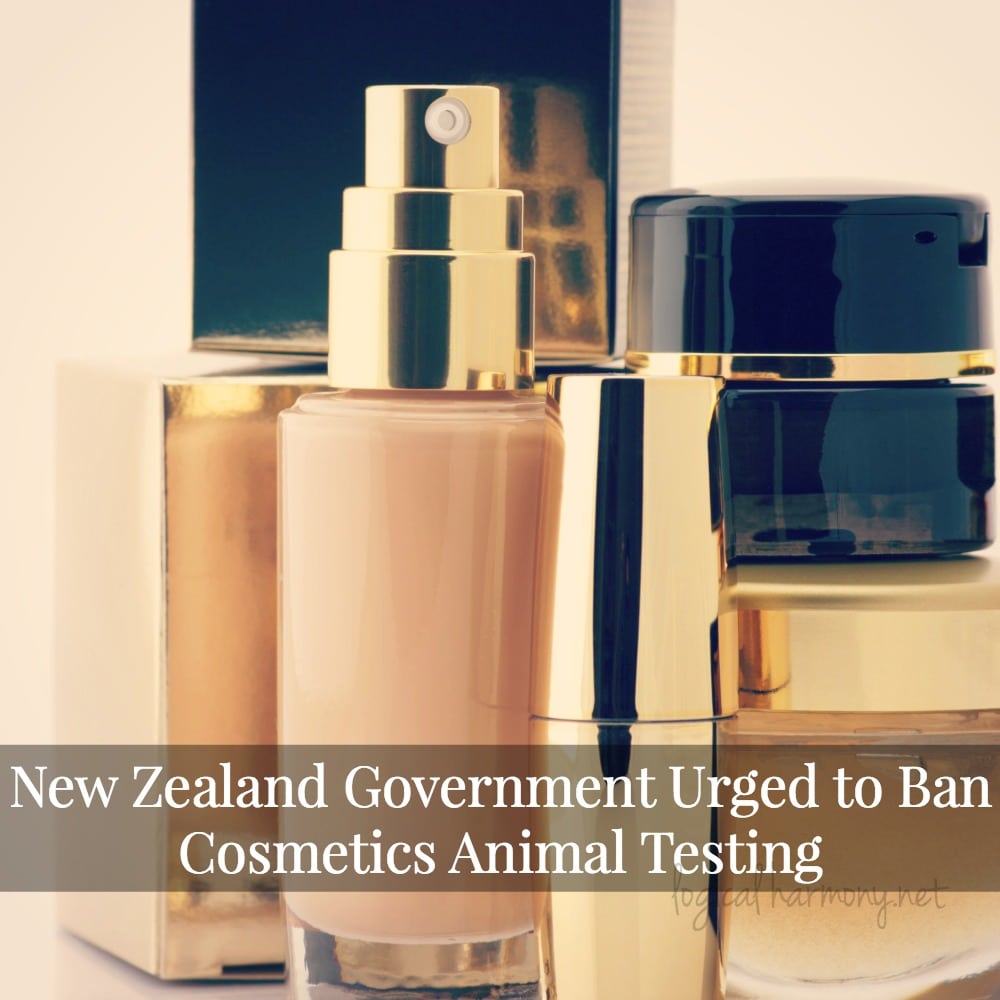New Zealand Government Urged to Ban Cosmetics Animal Testing
From time to time, I like to share press releases from various animal organizations around the world with Logical Harmony readers. I try to keep these to a minimum and share only the most important items. This press release from Humane Society International is one that I consider to be very important.
Currently, the New Zealand government is under pressure from four of the world’s largest animal organizations to enact a ban on animal testing. Currently, animal testing is not required by law in New Zealand but the country has yet to take official steps to enact a ban on animal testing. An amendment to the Animal Welfare Act has been proposed that would outlaw animal testing.
This proposed act is very important. With more countries enacting bans on animal testing, it is becoming easier to urge other governments to enact similar bans. Continue reading to find out what you can do to help increase the chances of an animal testing ban in New Zealand!
Continue reading for more about how the New Zealand Government is Urged to Ban Cosmetics Animal Testing!
The World’s Four Largest Animal Welfare Charities Urge New Zealand Government to Ban Cruel Cosmetics Animal Testing
Humane Society International, World Animal Protection, International Fund for Animal Welfare and the Royal Society for the Prevention of Cruelty to Animals write urgent letter
WELLINGTON (16 Feb. 2015) – Four of the world’s largest animal welfare organisations are urging New Zealand’s Minister for Primary Industries, Nathan Guy, to support a ban on cosmetics animal testing in the amended Animal Welfare Act currently under review. Humane Society International, World Animal Protection, the International Fund for Animal Welfare and the Royal Society for the Prevention of Cruelty to Animals have united in their call for New Zealand to follow the lead of the European Union, Norway, Israel and India and become the first country in Australasia to outlaw testing cosmetics on live animals. Together, the organisations represent 30 million people around the world.
In a joint letter the groups sent to Minister Guy, they wrote: “There is a strong global precedent for prohibiting animal testing for cosmetic purposes. More than 30 countries around the world have taken principled positions on this issue and banned cosmetics animal testing. Legislation to ban cosmetics animal testing and/or the sale and import of animal-tested cosmetics is pending in the United States, Brazil, Australia, and Taiwan. Similar legislative measures are currently under discussion in Canada, Korea and beyond. All of these nations are recognizing the need for a legislative solution to ending animal testing of cosmetics.
New Zealand has the opportunity to show global leadership on this issue and become the first country in Australasia to prohibit this unnecessary animal testing within its borders. By acting now, the government will still be among the first nations in the world to take decisive action; it will live up to its reputation as a global leader in animal welfare, a position that NZ is so proud of, and it will ensure that the NZ brand is protected in the international marketplace. By choosing not to support SOP 004, New Zealand would place itself in the position of being the first and only country in the world thus far to reject the opportunity to ban cosmetics cruelty.”
FINAL Joint Letter to NZ Govt on cosmetics animal testing ban FINAL
In cosmetics tests, rabbits, guinea pigs, mice and other animals can have chemicals dripped in their eyes, spread on their skin, or force fed to them in massive doses. No pain relief is given, and the animals can endure symptoms ranging from swollen eyes and bleeding skin, to organ damage and even death. There is no legislative prohibition on such testing in New Zealand, but an amendment to the Animal Welfare Act has been proposed that would outlaw the practice. A test ban has the support of the vast majority of Kiwis (89.2 per cent), and the explicit backing of New Zealand’s Cosmetic Toiletry and Fragrance Association.
But the Government has resisted a ban on the erroneous assumption that the current non-mandatory system would make such testing unlikely. Not good enough, say the world’s four largest animal groups.
New Zealand does not have a law or regulation preventing animals being used for testing cosmetics now or in the future. Such decisions are made on a case-by-case basis by institutional ethics committees, which could approve such testing at any point in the future. Such committees are also in place in the European Union, India and elsewhere, but policy makers there recognised that these were no substitute for clear legislative prohibition.
Humane Society International, which runs the #BeCrueltyFree New Zealand campaign alongside local groups NZAVS and HUHA, has so far collected nearly 100,000 signatures of public support, adding to the star power of celebrities backing a ban such as The Almighty Johnsons actress Michelle Langstone, Shortland Street actor Sam Bunkall, singer Anna Coddington, netball champion Irene van Dyke, and legendary Queen guitarist Brian May. Cruelty-free companies including LUSH, Antipodes, Wendyl’s and Kester Black have also joined the call for a ban.
Revisions to the Animal Welfare Act could be voted on as early as next week, and Kiwis can take action here to show politicians they want a ban on cosmetics animal testing.
